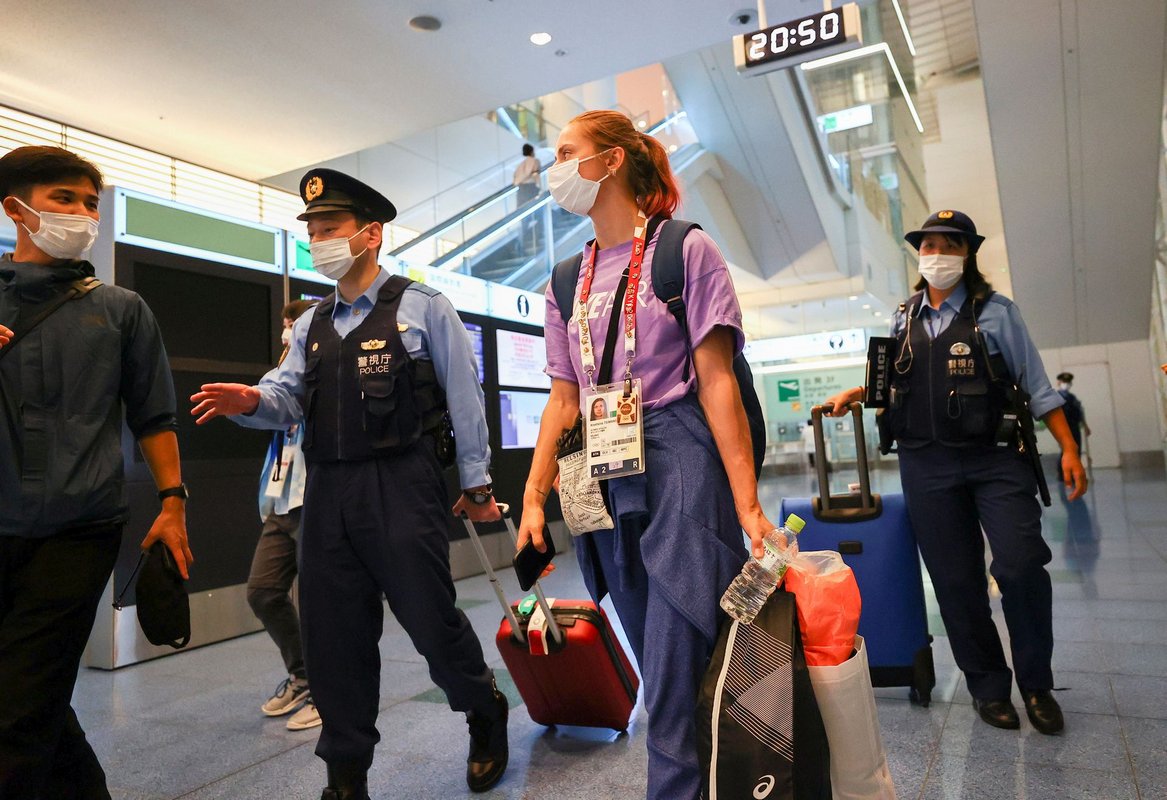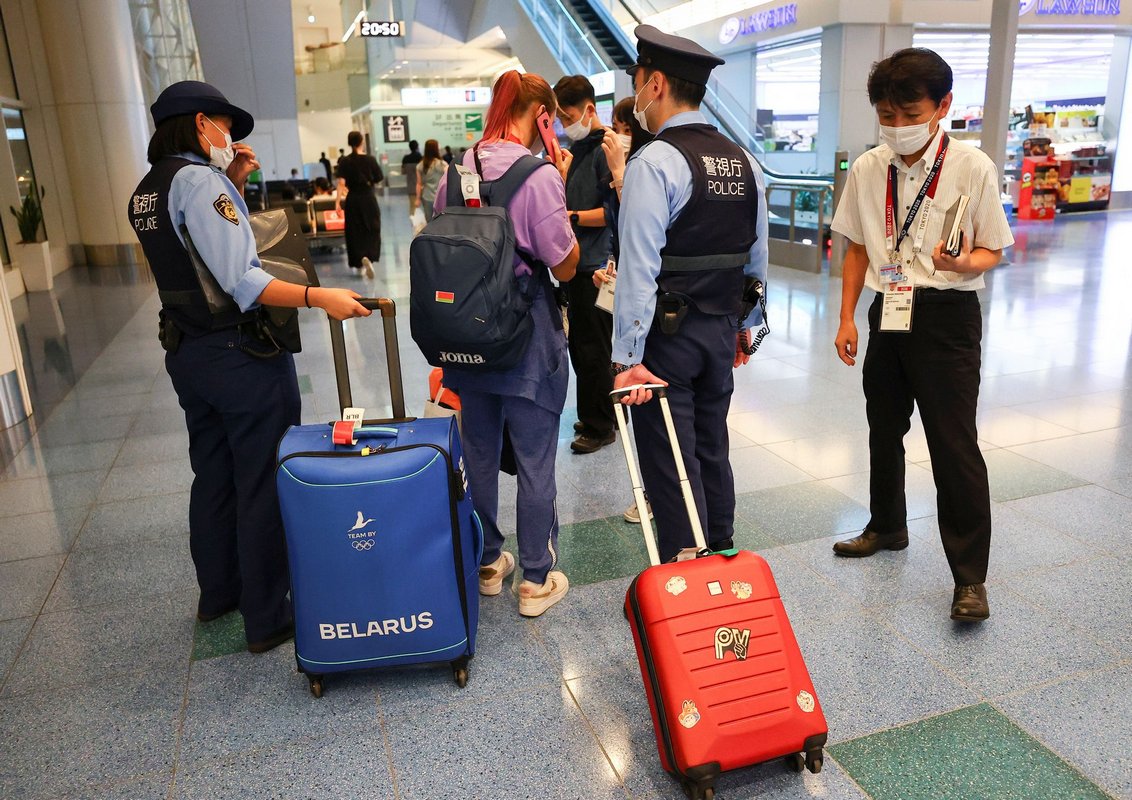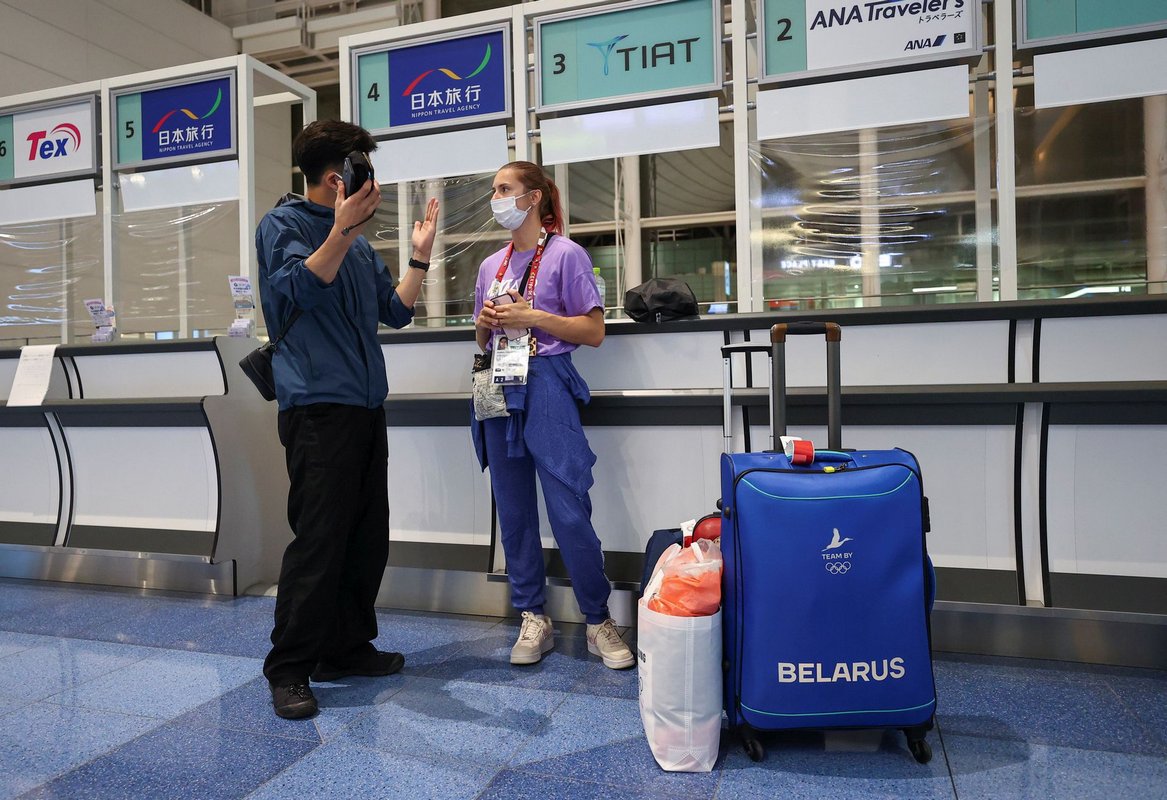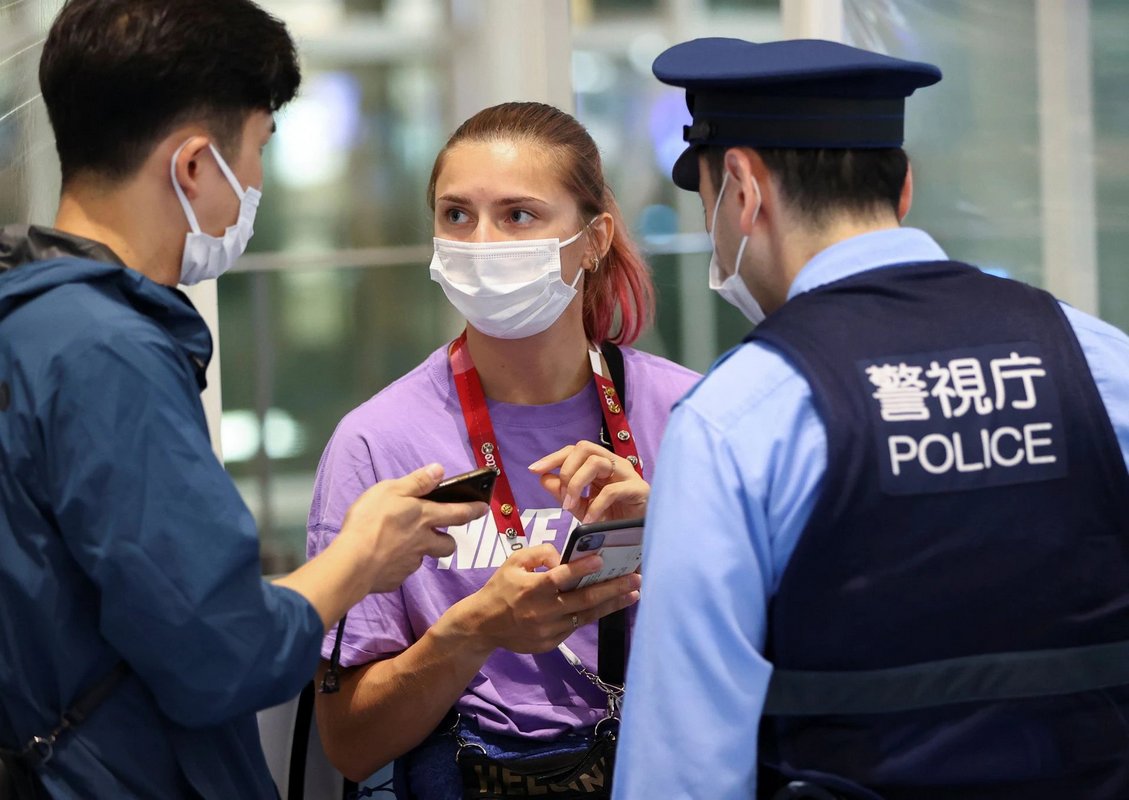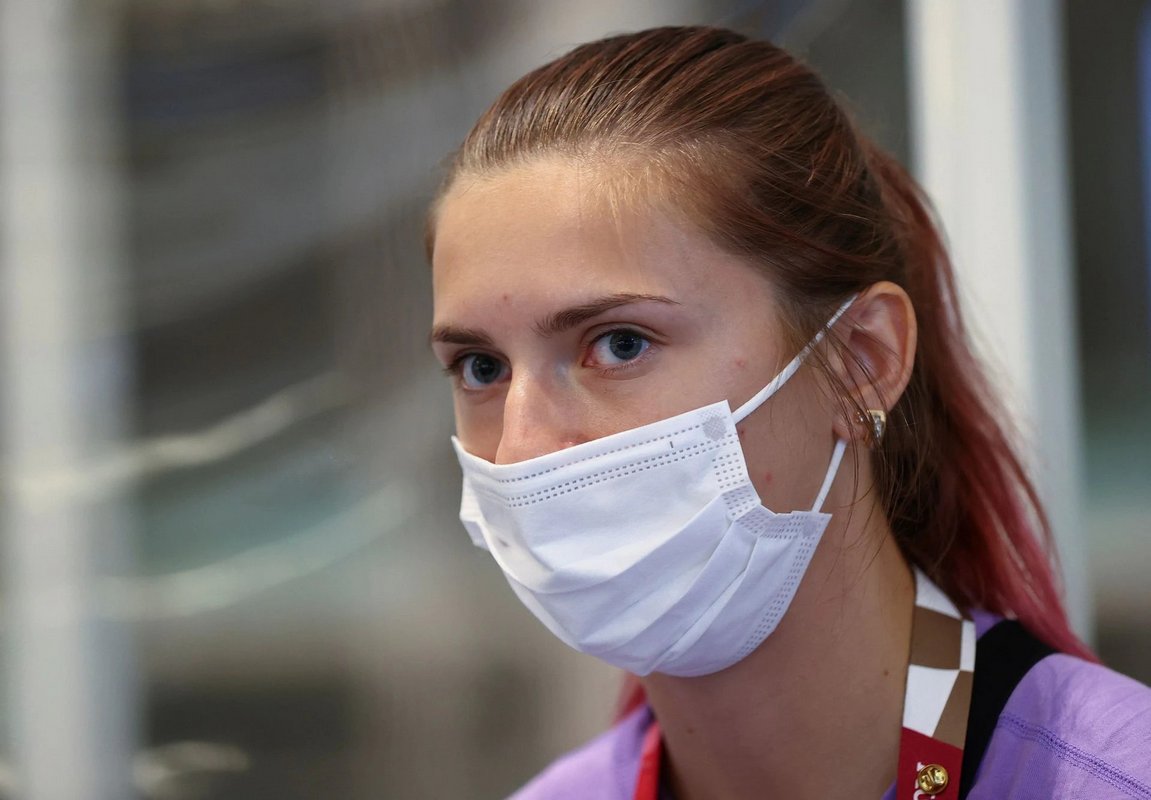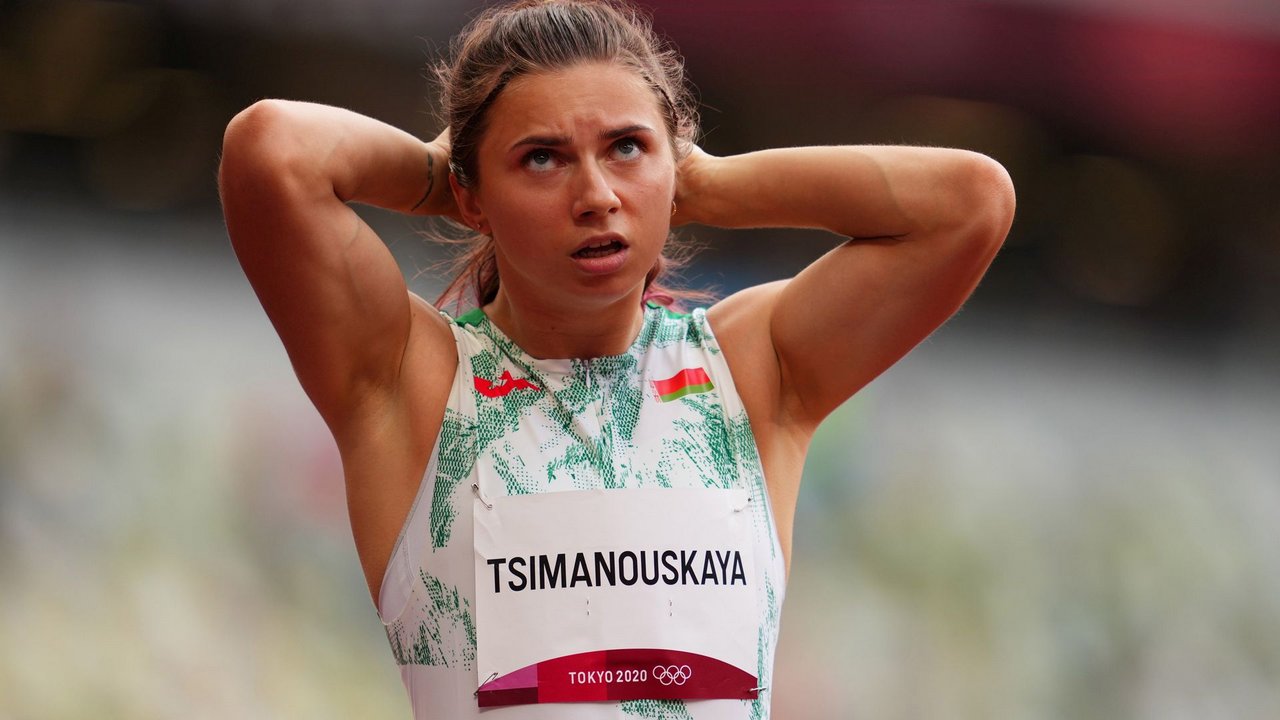A Belarusian sprinter refused to get on a flight from Tokyo on Sunday after being taken to the airport against her wishes by her team following her complaints about national coaches at the Olympic Games.
Krystsina Tsimanouskaya, 24, was still at Tokyo’s Haneda airport in the early hours of Monday.
The International Olympic Committee said it had spoken to Tsimanouskaya and that she was being accompanied by a staff member of Tokyo 2020 at the airport.
“She has told us she feels safe,” the IOC said in a tweet.
It added the IOC and Tokyo 2020 would continue their conversations with Tsimanouskaya and the authorities “to determine the next steps in the upcoming days”.
The case highlighted discord in Belarus, a former Soviet state that is run with a tight grip by President Alexander Lukashenko. In power since 1994, he faced a wave of protests last year, which some athletes joined.
Tsimanouskaya said coaching staff had come to her room on Sunday and told her to pack. She said she was taken to Haneda airport by representatives of the Belarusian Olympic team.
But she refused to board the flight and sought protection from the Japanese police instead, telling Reuters in a message over Telegram: “I will not return to Belarus”.
The Belarusian Olympic Committee said in a statement that coaches had decided to withdraw Tsimanouskaya from the Games on doctors’ advice about her “emotional, psychological state”.
The committee did not immediately respond to a request for additional comment.
Earlier, a Reuters photographer saw the athlete standing next to police at the airport. “I think I am safe,” Tsimanouskaya said. “I am with the police.”
In a video published earlier on Telegram by the Belarusian Sport Solidarity Foundation, Tsimanouskaya had asked the IOC to get involved in her case.
A source at the foundation, which supports athletes jailed or sidelined for their political views, said Tsimanouskaya planned to request asylum in Germany or Austria on Monday.
The foundation’s head, former Olympic swimmer Aliaksandra Herasimenia, told Reuters that Tsimanouskaya could also be receiving assistance from Poland.
“We appealed to a number of countries for help,” said Herasimenia, a three-time Olympic medallist. “But the first that reacted was the Polish consulate. We are ready to accept their help.”
Lukashenko’s son, Viktor Lukashenko, is president of the Belarus Olympic Committee.
COACHES’ ‘NEGLIGENCE’
Tsimanouskaya ran in the women’s 100 metres heats on Friday and was scheduled to run in the 200 metres heats on Monday, along with the 4×400 metres relay on Thursday.
She said she had been removed from the team due “to the fact that I spoke on my Instagram about the negligence of our coaches”.
Tsimanouskaya had complained on Instagram that she was entered in the 4×400 m relay after some members of the team were found to be ineligible to compete at the Olympics because they had not undergone a sufficient amount of doping tests.
“Some of our girls did not fly here to compete in the 4×400 m relay because they didn’t have enough doping tests,” Tsimanouskaya told Reuters from the airport.
“And the coach added me to the relay without my knowledge. I spoke about this publicly. The head coach came over to me and said there had been an order from above to remove me.”
Exiled Belarusian opposition leader Sviatlana Tsikhanouskaya urged the IOC to take up the athlete’s case.
“She has a right to international protection & to continue participation in the @Olympics,” Tsikhanouskaya tweeted. “It is also crucial to investigate Belarus’ NOC violations of athletes’ rights.”
ATHLETES JAILED
President Lukashenko was faced with mass street protests last year over what his opponents called rigged elections, and ordered a violent crackdown on protesters. The president denies the allegations of vote-rigging.
Unusually in a country where elite athletes often rely on government funding, some prominent Belarusian athletes joined the protests. Several were jailed, including Olympic basketball player Yelena Leuchanka and decathlete Andrei Krauchanka.
Others lost their state employment or were kicked off national teams for supporting the opposition.
During the Cold War, scores of sportspeople and cultural figures defected from the Soviet Union and its satellite states during overseas competitions or tours. But the freedom of travel that came with the fall of the Soviet Union in 1991 saw the need for such dramatic acts dwindle.
 Alghadeer TV Alghadeer TV
Alghadeer TV Alghadeer TV
